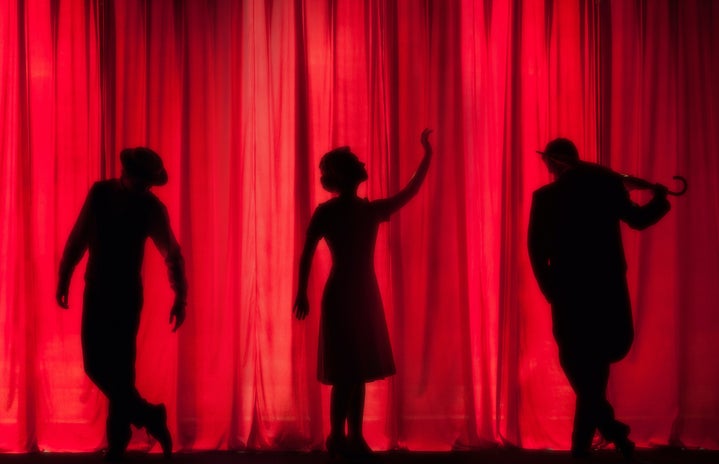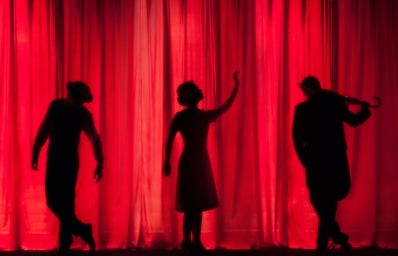“Gaslight, gatekeep, girl boss”. Many of us have seen this phrase pop up across popular culture, from Tik Tok trending audios to memes about a girl from your old high school trying to get you on board the newest multi-level marketing scheme with an excessive amount of emojis! As funny as these associations are, the rise in popularity of the term ‘girl boss brings about real questions regarding women’s opportunities in professional industries and within the larger workings of a male-dominated culture.
It comes as no surprise that male-dominated sectors of work, such as STEM careers, create an environment that is difficult for women professionals to break through, with women making up 24% of those in the STEM workforce in the UK as of 2019, reported by a WISE campaign. However, in the professional industries stereotypically associated with women, it seems that men still have greater chances of achieving recognition and success.
Award-winning writer and academic, Jennifer Tuckett, carried out her own investigation of gender inequality in the theatre industry with her research project called “What Share of the Cake?”. As Literary Director of Sphinx Theatre, the UK’s longest-established women’s theatre company, Tuckett reports on shocking statistics that outline the lack of support for women creatives.
In 2018, it was reported that a whopping 69% of artistic directors were male, with women only making up the remaining 31%. Looking further into this statistic, only 21% of the funding awarded to theatre companies went to companies with a female Artistic Director. Jennifer Tuckett’s research provides us with a taste of the wider issues women face regarding a lack of opportunity and support for female creatives, in an industry that they are criticised for choosing in place of more ‘academic’ pursuits.
Though Tuckett’s findings focus on the hard facts surrounding gender inequality in the theatre industry, I wanted to explore a more personal insight on the lived experiences of women professionals. Luckily, I was able to sit down with two women well-versed in the workings of the theatre industry: Hetty Bater, co-founder and Artistic Director of Hitcher Encounters, and Grace Wilkinson, co-founder and current Associate Artist working with Hitcher Encounters in Leeds.
The company is further headed by co-founders as well as Artistic Directors Arathi Suresh and Ellie Cansdale. We spoke about the struggles they faced while breaking into the Immersive Theatre industry as an all-female theatre company and, despite such struggles, their success and promising career!
Hitcher Encounters describes themselves on their website as “a female-led, interactive immersive theatre company” that puts their “audience at the heart of every encounter”. Unlike traditional theatre productions, the company truly tailors their content to their audience and upholds the value of experiencing a personal journey, by setting its productions in the audience member’s own life.
It is this very heart that Grace Wilkinson speaks on, explaining that “the qualities that you associate with being woman, such as being caring, are put aside in theatre. Hitcher has done well because of these qualities. Care is at the heart of women creatives, and this is often overlooked”. This combination of a more interactive genre of theatre alongside the extra care provided by these women creatives help push the boundaries set by traditional theatre and challenges the structure of the theatre industry that is heavily built upon an ingrained trust in male professionals.
Though female-led, Wilkinson and Bater clarified that “people get mixed up that [Hitcher Encounters] are a cult of women. It’s not that we exclude, but it is instead a place for women creatives to feel inspired”. Recalling the statistics in Jennifer Tuckett’s study, it seems that the work environment women find themselves in does not breed equal opportunity as it does to their male counterparts.
The emphasis that Hitcher Encounters puts on a place, whether physical or figurative, that feels supportive as a woman creative, suggests a lack of these spaces within the wider theatre industry. “[Being a female-led company] doesn’t show in our work, but in the way we work. We all work collaboratively; men tend to storm ahead” said Bater.
It could be said for most women who have worked in any collaborative space, like a seminar or team meeting; you feel the need to undersell yourself. Often a well thought through point or discussion is followed with the classic statement ‘but I don’t know if that makes any sense’.
Moreover, those who tend to storm ahead end up stifling the voices of female creatives, resulting in the imbalance between women and men who have higher positions in the industry. The very hesitation many women feel when voicing their thoughts is rooted in the deeper patriarchal norms of our society, and thus permeates the creative workspaces in the theatre industry.
In everyday business encounters (pun intended), “people are taken back by the fact that four young girls show up in a meeting when [we are] networking”, Wilkinson stated. By the nature of Immersive Theatre, there is always a sense of mystery as well as separation from the artist and the work that they produce. This should not, however, allow room for assumptions to be made about the creators’ identities solely based on the quality of their work.
Hetty explained that the logistics of post-pandemic online networking has given Hitcher Encounters the chance to “prove [themselves] without telling people who [they] are first”. Though the success of Hitcher Encounters is owed entirely to the company members’ hard work and determination, the new age of remote work has opened opportunities that sadly may not have been available if the creators’ identities were more transparent.
With the goal of reaching gender parity, Hetty Bater and Grace Wilkinson believe that “change needs to happen from the top. When men speak to women creatives they need to take the steps to think about what the [woman’s] idea is and how it works”. It’s now the responsibility of men to listen to women, and uphold their creative voices as they continue to carve out their own path in the industry. Wilkinson states that in the meantime “you can’t feel held back by it. You have to get the fire in your belly to prove yourself”.
With a long way to go to reach gender equality in the theatre industry, women like those behind Hitcher Encounters will continue to make themselves heard and bring about change within an industry that needs it.
If the amazing work that Hitcher Encounters produces sounds like something you’d be interested in, keep a lookout for upcoming projects in 2022! You will find all updates on their social media featured below:
Website: https://www.hitcherencounters.com
Twitter: @hitcher_enc
Facebook: https://www.facebook.com/HitcherEncounters20/
Instagram: @hitcher_enc
Experts:
- Jennifer Tuckett, Academic, Playwright and Director of University Women in the Arts
- Hetty Bater, Industry Professional, Co-founder and Artistic Director with Hitcher Encounters
- Grace Wilkinson, Industry Professional, Freelance Artist, Co-founder and Associate artist with Hitcher Encounters
Words by: Grace Jennings
Edited by: McKenzie Burnett


